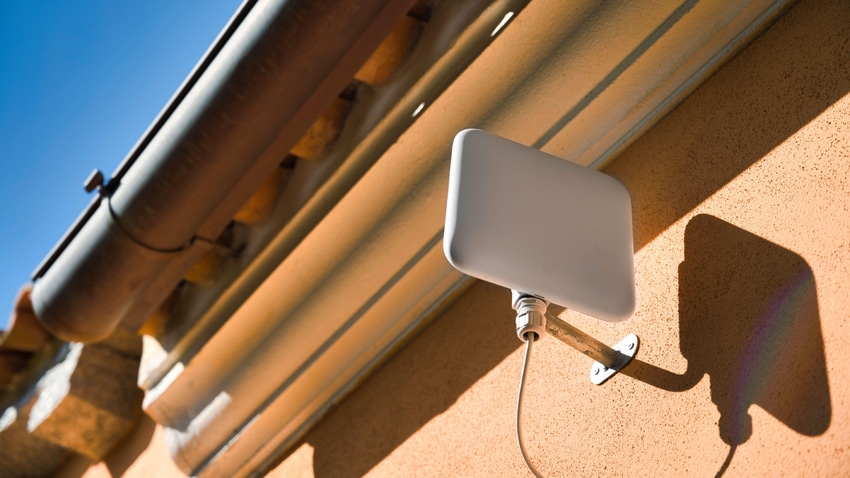India's Jio reveals plans for FWA and beyond
Reliance Industries shared 5G rollout updates and focus areas for Jio at the company's 47th AGM.

Reliance Industries annual general meetings (AGM) never disappoint in terms of newsworthy updates and this time was no different. The key initiative announced by the company's chairman, Mukesh Ambani, was the launch of a fixed wireless access (FWA) based broadband service, Jio AirFiber, on September 19, which coincides with a popular Indian festival, Ganesh Chaturthi.
It will use Jio's 5G network to address the problem of last-mile connectivity in India. Jio already has an optical fiber network of 1.5 million kilometers across the country and it continues to add 1,000km of fiber every day, said Ambani.
"Jio AirFiber uses our pan-India 5G network and advanced wireless technologies to bypass the need for last-mile fiber. Through optical fiber, we can currently connect around 15,000 premises daily. But with Jio AirFiber, we can supercharge this expansion with up to 150,000 connections per day. That is a ten-fold increase, expanding our addressable market over the next three years to over 200 million high-paying homes and premises," said Ambani.
Jio's competitor Bharti Airtel also launched a similar FWA service called Xstream AirFiber recently. This segment is likely to emerge as a new battleground between the two companies. Jio will likely try to offer services at very economical rates to capture a significant share of this market, as India has limited penetration of fixed broadband. Further, this segment has been largely ignored by the telcos.
In addition, the launch of Jio AirFiber is also crucial for the company's smart home solutions, which were demonstrated at the AGM.
Update of 5G rollout
Ambani also revealed that Jio's 5G services are now available in around 96% of India's census towns and the company has 50 million 5G subscribers.
"With the growing adoption of Jio 5G, we are also seeing an increasing trend of high-ARPU, post-paid customers choosing Jio as their preferred network," he said. This helps counter the criticism that Jio is primarily being used by subscribers as a second SIM and not as a primary connectivity partner.
Ambani mentioned that Jio is operating 85% (around 275,563) of the total 5G cells operational in the country. According to data released by the Department of Telecommunications (DoT), India had a total of 324,192 by August 15. "At our current pace, we are adding one 5G cell to our network every ten seconds, and we will have nearly 1 million 5G cells operational in our network by December," said Ambani.
The company claims to be the first operator in the world to launch 5G standalone (SA) commercial services on millimeter-wave spectrum using its own 5G stack. Jio has also built its own low-power small cells for 5G densification and for improving indoor quality in locations with high footfalls.
Even as the service provider continues to expand its 5G network, it says it has started working on 6G. "Our focus on continuous innovation has positioned us to be among the first globally to develop 6G capabilities," said Ambani.
New developer platform, 5G Lab and Jio Bharat
Jio also introduced the Jio True5G Developer Platform and Jio True5G Lab at the AGM for the enterprise segment.
"It [the developer platform] offers businesses the flexibility to activate network slices as needed, deploy apps at Jio's multi-access edge compute locations, and gain access to a wide range of partner apps, all on one platform," said Ambani.
The Jio True5G Lab will allow Jio's technology partners and partners to develop, test and co-create industry-specific offerings. "While we provide connectivity services to over 80% of large enterprises in India, our focus will shift towards the small and medium business segment to scale this rapidly," Ambani added.
The company also launched a JioBharat 4G phone with a sale price of just 999 Indian rupees (US$12). This is targeted at 2G users looking to transition to the 4G network who are held back by the comparatively high cost of smartphones. This is in line with Jio's campaign for 2G mukt Bharat (2G-Free India).
Another focus area for Jio is artificial intelligence (AI). The company said it plans to build India-specific AI applications for people, enterprises and the government.
"Seven years ago, Jio promised broadband connectivity to everyone, everywhere. We have delivered. Today, Jio promises AI for everyone, everywhere. And we shall deliver," declared Ambani. "As this sector expands, we stand committed to create up to 2,000MW of AI-ready computing capacity across both cloud and edge locations. And we will do this while adopting sustainable practices and a greener future," he added.
Related posts:
— Gagandeep Kaur, Contributing Editor, special to Light Reading
Read more about:
AsiaAbout the Author(s)
You May Also Like











